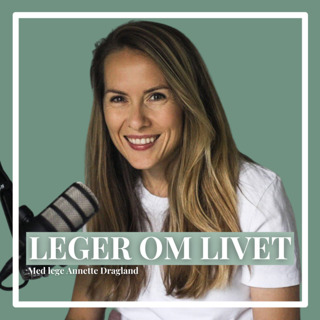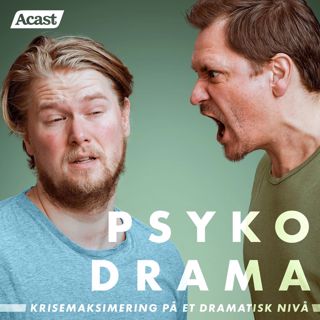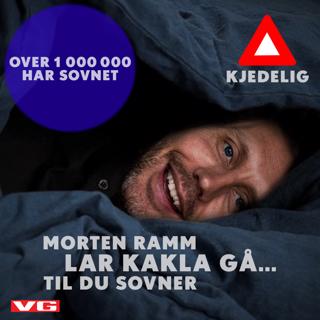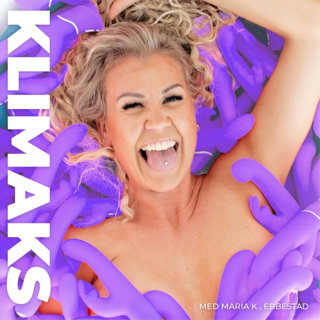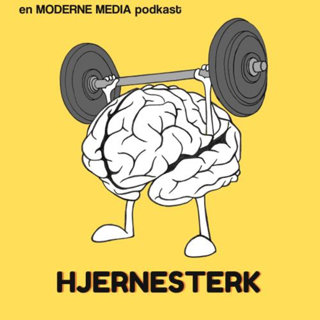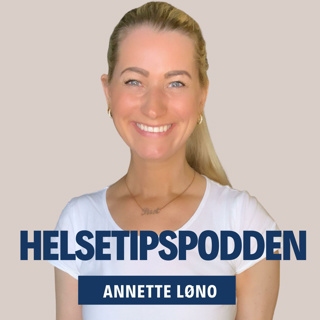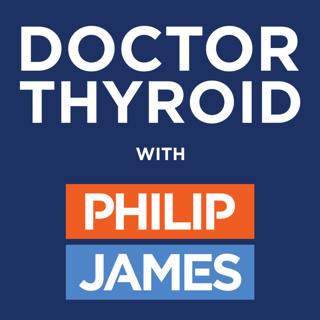
47: Treatment of Thyroid Cancer in Japan, with Dr. Takahiro Okamoto from Tokyo Women’s Medical University
This episode is recorded from Boston and the World Congress on Thyroid Cancer, where leading doctors and researchers have gathered to share the latest medical research and trends related to thyroid disease. At the Congress, Dr. Okamoto presented on Thyroid Cancer Guidelines Around the World He helped write the Japanese guidelines on thyroid cancer. He is Professor & Chair of the Department of Surgery at Tokyo Women’s Medical University. Key points from this episode include: Most Western countries carry out total thyroidectomies, whereas in Japan, the approach is more conservative with a fundamental practice of hemithyroidectomy whenever possible. By not doing a total thyroidectomy, this allows the patient to not avoid taking thyroid replacement medication. Complete thyroidectomy is conducted when 80-90% of lymph nodes have metastasis. I-131 treatment is decreasing despite cases of cancer increasing For I-131 treatment, patients wait more than 6 months post surgery. When receving I-131 treatment, patients be admitted to hospital for several days. TSH suppression therapy is common in Western countries, whereas in Japan, measures are taken to avoid TSH suppression by not removing all of the thyroid. Normal TSH in Japan is 4.3 or less. Culturally, Japanese patients are typically conservative compared to Western countries. Even high risk patients opt for no TT. In Japan people are less aggressive and more patient as a culture, and this is reflected in their approach to treating thyroid cancer. For medullary thyroid cancer, treatment management differs in japan. In Westerm countries, they receive TT. But, in Japan, if its not familial it is treated with hemithyrodectmy. Only when familial, is it treated with TT. Calcitonin Follicular diagnosis is difficult, benign and malignant is a big issue. Active surveillance is spreading now, the question is why? We must consider the patient’s view. Research from Japan focuses on the size of tumor, but must consider patient’s view. NOTES Book: Treatment of Thyroid Tumor: Japanese Clinical Guidelines American Thyroid Association RELATED EPISODES 38: Thyroid Surgery? Be Careful, Not All Surgeons Are Equal and Here is Why 35: Rethinking Thyroid Cancer – When Saying No to Surgery Maybe Best for You 6: A Must Listen Episode Before Getting Surgery – Do Not Do It Alone
6 Aug 201730min

46: Nerve Monitoring During Thyroid Surgery, with Dr. Özer Makay from Ege University - Turkey
This episode is recorded from Boston at the World Congress on Thyroid Cancer, where thyroid doctors and researchers gathered to share the latest medical research and medical improvements related to thyroid disease. Dr. Özer Makay is an expert in nerve monitoring during thyroid surgery, and has been a guest faculty member in South Korea, Italy, France, the Netherlands, Germany, Belgium and Bulgaria. He has received 17 awards and honors for his scientific studies. He has authored a 300-page book on nerve monitoring during thyroid surgery. This episode covers the following topics: Protecting the recurrent laryngeal nerve (RLN) and superior laryngeal nerve during thyroid surgery. Outcomes of damaging these nerves during surgery include no voice, hoarseness, shortness of breath, problem with drinking water or aspiration, impaired physical exertion with something as simple as climbing a flight of stairs. Why some centers have a higher occurrence of damage during thyroid surgery and include an error rate as high as 10% The cause of the damaged nerve include stretching or traction, and cutting or stitching. How to reduce risk. Is it possible to reattach a cut nerve? Surgeons who are opponents of using a nerve monitor. Pitfalls of using nerve monitoring. Also discussed are thyroid cancer trends in Turkey including: Incidence being in the top 5 in the world. Now the number one cancer for women. Proximity to Chernobyl. Screening and awareness as a reason for the increase. 50% of population has a thyroid nodule.In the words of Dr. Özer Makay Biography: In the words of Dr. Özer Makay I was born in 1974 in the Netherlands. After finishing the primary school there, I completed my secondary and high school educations at Bornova Anatolian High School in Izmir/Turkey. I graduated from Ege University, School of Medicine and started my residency at the General Surgery Department of Ege University, School of Medicine. During my studentship, I did my surgical internship at London King’s College Hospital. During my surgical residency, in 2002, I received education regarding “Laparoscopic Surgery” at Free University Hospital, Amsterdam from Prof. Miguel Cuesta and carried out scientific studies there. I had the opportunity to meet with the robotic surgery system here and did use this system at the experimental investigation laboratory. After being a specialist registrar in May 2005, I started to work at the division of “Endocrine Surgery” of the General Surgery Department of Ege University. During my fellowship, I worked under the supervision of Prof. Enis Yetkin, Prof. Mahir Akyıldız and Prof. Gökhan İçöz. During this period, I became the first Turkish surgeon to have the right to get the title “Fellow of European Board of Surgery – div. Endocine Surgery” by passing the “UEMS Board Examination for Endocrine Surgery”. At the Ege University, we started the “Laparoscopic Adrenalectomy Programme’ in 2008, together with Prof. Dr. Mahir Akyıldız. Besides, the “Robotic Surgery Programme’ was launched in 2012. I promoted to “Associate Professor of Surgery” in 2012. I have been invited to become a member of the European Board of Endocrine Surgery Committee. This makes me the first Turkish member of this committee. Besides, I was chosen as “the national representative” of a “European Union Health Project” concerning this area. To date, I own more than 80 national and international publications. Furthermore, I participated in more than 30 national and international scientific meetings as speaker, instructor and guest surgeon. I served as president, scientific secretary or organization/scientific committee member for national and international congresses and meetings. I had been in South Korea, Italy, France, the Netherlands, Germany, Belgium and Bulgaria as guest faculty member. I received 17 awards and honors because of my scientific studies presented during national and international scientific congresses. I speak English, Dutch and German fluently and Spanish at elementary level. My essential areas of interests are “endocrine surgery” and “robotic surgery”. As Ege University, we are the most experienced center of our country regarding “robotic adrenalectomy”. NOTES Dr. Özer Makay Contact Facebook Publications World Congress on Thyroid Cancer American Thyroid Association
1 Aug 201735min

45: Hipotiroidismo - Causas, Síntomas, y Pruebas y Exámenes. Con la Dra. Gabriela Brenta desde Buenos Aires
La glándula tiroides es un órgano importante del sistema endocrino. Está ubicada en la parte anterior del cuello, justo por encima de donde se encuentran las clavículas. La tiroides produce hormonas que controlan la forma como cada célula en el cuerpo usa la energía. Este proceso se denomina metabolismo. Hipotiroidismo es una afección en la cual la glándula tiroides no produce suficiente hormona tiroidea. Esta afección a menudo se llama tiroides hipoactiva. Este episodio Dra. Gabriela Brenta discute sobre hipotiroidismo, las causas, los síntomas, pruebas y exámenes, el tratamiento, pronóstico, posibles complicaciones, y cuándo contactar a un médico. Dra. Gabriela Brenta, M.D., Ph.D. Docente de post grado de la Universidad Favaloro y de las carreras de Especialista en Endocrinología así como de Bioquímica Clínica dependientes de Universidad de Buenos Aires. Médica adscripta en el Servicio de Endocrinología y Metabolismo de la Unidad Asistencial Dr. César Milstein de Buenos Aires, Sector Tiroides. Presidente del Comité Científico de la Sociedad Latinoamericana de Tiroides. Miembro del Dpto. de Tiroides de la Sociedad Argentina de Endocrinología y Metabolismo. Su área de investigación clínica abarca el efecto cardiovascular y metabólico de las hormonas tiroides.
27 Jul 201733min

44: Cáncer de Tiroides, con la Dra Ines Califano de Universidad de Buenos Aires
Doctor Califano es Endocrinóloga del Instituto de Oncología AH Roffo, Universidad de Buenos Aires. Es miembro del Departamento de Tiroides de la Sociedad Argentina de Endocrinología y Metabolismo y de la Sociedad Latinoamericana de Tiroides. Es coautora del Consenso Multisocietario Argenino para el Manejo del Cáncer de Tiroides Diferenciado. En esta entrevista, discutimos lo siguiente: ¿Qué es un nódulo? ¿Qué sucede durante ecografia? ¿Qué sucede durante la oja fina? Si es cáncer, ¿siempre hace la cirugía? Si no es cáncer, ¿algunas veces hace cirugía? ¿Qué sucede durante la cirugía? ¿Cuánto tiempo se tarda en recuperarse? ¿Es necesario radioactivo? ¿Qué sucede durante la RAI? ¿Hay efectos secundarios? Dieta especial. Si se elimina mi tiroides, ¿cómo será mi vida después? T4 ¿Cómo elijo al mejor cirujano? ¿Cuáles son los errores médicos que usted ve con más frecuencia y cómo pueden evitarse? ¿A qué hora del día debo tomar mi medicamento para la tiroides?
19 Jul 201725min

42: Flame Retardants Connected to Thyroid Cancer, with Dr. Julie Ann Sosa from Duke University
This is an in depth discussion about the connection between flame retardants and plastics, and thyroid cancer. These chemicals, also known as endocrine disruptors, have a clear connection to thyroid cancer occurrence. The research is presented by Julie Ann Sosa, MD MA FACS is Chief of Endocrine Surgery at Duke University and leader of the endocrine neoplasia diseases group in the Duke Cancer Institute and the Duke Clinical Research Institute. She is Professor of Surgery and Medicine. Her clinical interest is in endocrine surgery, with a focus in thyroid cancer. She is widely published in outcomes analysis, as well as cost-effectiveness analysis, meta-analysis, and survey-based research, and she is director of health services research. NOTES: Study Associates Flame Retardants with Papillary Thyroid Cancer Flame retardants used in furniture may increase thyroid cancer risk Trends in Thyroid Cancer Incidence and Mortality in the United States, 1974-2013 How to Buy a Sofa without Toxic Flame Retardants Julie Ann Sosa, MD
5 Jul 201727min

40: New Research Reveals Thyroid Surgery Errors 5x More Frequent Than Reported with Dr. Maria Papaleontiou from Michigan Medicine
I sometimes get asked, why am I doing this podcast? What started out as a pet project is now being listened to in over 30 countries and with as many as 20000 downloads per episode. So far, thyroid patients are embracing the opportunity to hear from the world’s leading thyroid doctors, and gaining the information needed to make better decisions related to health. So why did I start Doctor Thyroid? My motivation for doing this podcast is to help patients avoid bad experiences related to thyroid cancer and thyroid disease, including bad surgery. And, provide resources to help make better health decisions and improve quality of life. My thyroid surgery resulted in errors, which have downgraded my quality of life significantly. Knowing what I know now, I would have picked a different surgeon, or chosen no surgery at all. Because, as this interview will discuss, although perceived as safe, thyroid surgery is not without risks. To be published next month, new research reveals thyroid surgery errors are five times more likely than previously reported. The study was conducted by Dr. Maria Papaleontiou. She is an Assistant Professor of Internal Medicine with an appointment in the Division of Metabolism, Endocrinology and Diabetes. She graduated medical school from the prestigious Charles University in the Czech Republic and subsequently spent several years conducting research at the Geriatrics Division at Weill Cornell Medical College. She then completed her internal medicine residency at Saint Peter’s University Hospital in New Jersey and her endocrinology fellowship at the University of Michigan. She joined the faculty at the University of Michigan in 2013. She is a recipient of Fulbright and Howard Hughes Medical Institute scholarships. Dr. Papaleontiou’s practice focuses on thyroid disorders and thyroid cancer. She is especially interested in the treatment of endocrine disorders in older adults. She also conducts health services research in the field of thyroidology and aging. NOTES Dr. Maria Papaleontiou Complications from thyroid cancer surgery more common than believed, study finds National Cancer Institute (NCI) RELATED DOCTOR THYROID INTERVIEWS Dr. Ralph Tufano: Be Careful, Not All Surgeons Are Equal and Here is Why Dr. Gary Clayman: The Single Most Important Question to Ask Your Surgeon Dr. Allen Ho: Rethinking Thyroid Cancer – When Saying No to Surgery Maybe Best for You
26 Jun 201730min

39: Thyroid Cancer Web Sites Confuse Patients with Dr. Rashika Bansal from St. Joseph's Regional Medical Center
Dr. Rashika Bansal is a PGY-2 resident in Internal Medicine at St. Joseph's Regional Medical Center in Paterson, NJ. Her major research has been with diabetes prevalence and awareness in rural India, with special interest in thyroid disease. In this episode Dr. Bansal shares the research she presented at AACE 2017 and ENDO 2017, regarding the poor readability scores for thyroid cancer web sites. The challenge for these web sites and health institutions is to translate thyroid education from complex to simple and easy to understand. Currently, many patients are not following with treatment, citing confusion after being exposed to the various thyroid cancer education resources. NOTES Thyroid Education Scores Low for Readability Thyroid patient education materials not adequately targeted to patient reading level
22 Jun 201726min

35: Rethinking Thyroid Cancer - When Saying No to Surgery Maybe Best for You with Dr. Allen Ho from Cedars-Sinai in Los Angeles
Weighing treatment options for thyroid cancer, with deep consideration for the patient’s lifestyle, could become the new norm in assessing whether surgery is the best path. Dr. Allen Ho states, “if a patient is a ballerina or an opera singer, or any other profession that could be jeopardized due to undesired consequences of thyroid cancer surgery, then the best treatment path maybe active surveillance.” Undesired consequences of thyroid cancer surgery could be vocal cord paralysis, damage to the parathyroid glands resulting in calcium deficiencies, excessive bleeding or formation of a major blood clot in the neck, shoulder nerve damage, numbness, wound infection, and mental impairment due to hypothyroid-like symptoms. Or in the case of a ballerina, undesired scarring could jeopardize a career. The above risks occur in approximately 10% of thyroid cancer surgeries. Although, some thyroid cancer treatment centers have a much more reduced incidence of undesired consequences, while others much higher. In order to address the above and remove the risk of thyroid cancer surgery, Cedars-Sinai has become the first west coast hospital to launch an active surveillance study as optional treatment for thyroid cancer. The study includes 200 patients from across the country who have chosen the wait and see approach rather than hurry into a surgery that could result in undesired, major life changes. By waiting, this means these patients will dodge the need to take daily hormone replacement medication for the rest of their lives as the result of a thyroidectomy. Other active surveillance research Although this is the first study for active surveillance on the west coast, other studies are ongoing, including Sloan Kettering as directed by Dr. Tuttle, Kuma Hospital in Kobe as directed by Dr. Miyauchi, and the Dartmouth Institute as directed by Dr. Louise Davies. The team Dr. Ho says the “de-escalating” of treatment for thyroid cancer will become the new trend. The active surveillance thyroid cancer team at Cedars-Sinai is orchestrated to the patient’s needs, and includes the pathologist, endocrinologist, and surgeon. About Dr. Allen Ho Allen Ho, MD, is a fellowship-trained head and neck surgeon who focuses on head and neck tumors, including HPV(+) throat cancers and thyroid malignancies. As director of the Head and Neck Cancer Program and co-director of the Thyroid Cancer Program, he leads the multidisciplinary Cedars-Sinai Head and Neck Tumor Board, which provides consensus management options for complex, advanced cases. Ho's research interests are highly integrated into his clinical practice. His current efforts lie in cancer proteomics, HPV(+) oropharyngeal cancer pathogenesis, and thyroid cancer molecular assays. He has presented his research at AACR, ASCO, AHNS, and ATA, and has published extensively as lead author in journals that include Nature Genetics, Journal of Clinical Oncology, Cancer, and Thyroid. Ho serves on national committees within the ATA and AHNS, and is principal investigator of a national trial on micropapillary thyroid cancer active surveillance (ClinicalTrials.gov ID: NCT02609685). He maintains expertise in transoral robotic surgery (TORS), minimally invasive thyroidectomy approaches, and nerve preservation techniques. Ho’s overarching mission is to partner with patients to optimize treatment and provide compassionate, exceptional care. NOTES American Thyroid Association Cedars-Sinai clinical trial MSKCC thyroid cancer active surveillance THYCA Support Group Active Surveillance of Thyroid Cancer Under Study
20 Mai 201743min




